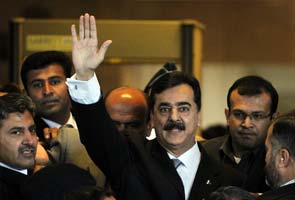Whenever you make any controversial post on Facebook, beware. Because, on charges of violating Facebook's policies, you may blocked.
With a dedicated team of over hundred, the popular social networking website ensures that more than 900 million users comply with the company's policies whenever they post something on the website. Essentially a round-the-clock job, Facebook strategically uses its offices based in in Menlo Park, Austin, Dublin and Hyderabad to work seamlessly to file reports of inappropriate posts.
In a report on Tuesday, the social networking site explains how this is done. It says, "For instance, when the User Operations team in Menlo Park is finishing up for the day, their counterparts in Hyderabad are just beginning their work keeping our site and users safe. And don't forget, with users all over the world, Facebook handles reports in over 24 languages. Structuring the teams in this manner allows us to maintain constant coverage of our support queues for all our users, no matter where they are.
When a person reports against a specific content it gets directed to four separate teams, who in turn takes necessary action. The four teams - Abusive Content Team, Safety Team, Hate and Harassment Team and Access Team - have different roles to play. "For example, if you are reporting content that you believe contains graphic violence, the Safety Team will review and assess the report," says the report, adding that "If one of these teams determines that a reported piece of content violates our policies or our Statement of Rights and Responsibilities, we will remove it and warn the person who posted it." Similarly the Abusive Content Team handles spam and sexually explicit content, the Hate and Harassment Team handles reports of hate speech and harassment and the team that handles hacked and imposter accounts is called the Access Team.
If any content is found violating the policies of the social networking website, the content is removed and the publisher is warned or, in certain cases, blocked.
With a dedicated team of over hundred, the popular social networking website ensures that more than 900 million users comply with the company's policies whenever they post something on the website. Essentially a round-the-clock job, Facebook strategically uses its offices based in in Menlo Park, Austin, Dublin and Hyderabad to work seamlessly to file reports of inappropriate posts.
In a report on Tuesday, the social networking site explains how this is done. It says, "For instance, when the User Operations team in Menlo Park is finishing up for the day, their counterparts in Hyderabad are just beginning their work keeping our site and users safe. And don't forget, with users all over the world, Facebook handles reports in over 24 languages. Structuring the teams in this manner allows us to maintain constant coverage of our support queues for all our users, no matter where they are.
When a person reports against a specific content it gets directed to four separate teams, who in turn takes necessary action. The four teams - Abusive Content Team, Safety Team, Hate and Harassment Team and Access Team - have different roles to play. "For example, if you are reporting content that you believe contains graphic violence, the Safety Team will review and assess the report," says the report, adding that "If one of these teams determines that a reported piece of content violates our policies or our Statement of Rights and Responsibilities, we will remove it and warn the person who posted it." Similarly the Abusive Content Team handles spam and sexually explicit content, the Hate and Harassment Team handles reports of hate speech and harassment and the team that handles hacked and imposter accounts is called the Access Team.
If any content is found violating the policies of the social networking website, the content is removed and the publisher is warned or, in certain cases, blocked.



